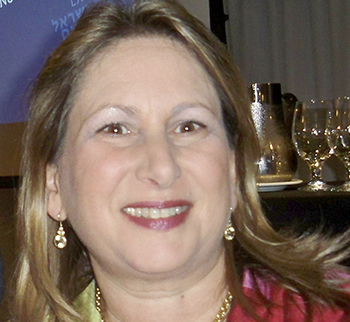MONTREAL — Quebec’s values charter would have a “devastating” impact on the Jewish community, and is already dissuading Jewish immigrants, notably from France, from coming here, Federation CJA and its advocacy arm, the Centre for Israel and Jewish Affairs (CIJA), say in a joint brief to the National Assembly committee conducting hearings on Bill 60.
“Since the beginning of this debate, a noxious social climate has developed and had a negative impact on the continuity of the Jewish community,” the strongly worded brief states.
“Numerous French Jewish families tell us that they are now considering immigrating to other regions of North America instead of Quebec.”
The community has been working for years to attract Jewish immigrants, especially from France, to offset the decline in its numbers since the 1970s, they say, as well as to find ways to keep its youth in the province.
“Now, the debate on the ‘Charter of Quebec Values’ has destabilized our young people, of whom greater and greater numbers ask themselves whether there is a place for them in Quebec,” the 40-page brief states.
The organizations want the bill withdrawn, calling it “a bad solution to a problem that does not exist,” one that violates the federal and Quebec human rights charters as well as the United Nations’ Universal Declaration of Human Rights.
They also fear that the bill’s “vague character” would give civil servants “excessive discretionary powers.”
The brief warns against Quebec modelling its brand of secularism on France’s rigid separation of church and state, which has contributed to social tensions.
“By importing to Quebec a model of secularism foreign to Quebec history, we risk importing with it social conflicts that until now have been absent from Quebec,” CIJA and the federation state.
Since the Quiet Revolution a half-century ago, the province has developed a balance between the rights of the majority and the rights of minorities that works quite well, they say.
The bill “threatens to betray the Quebec tradition of pluralism, to exclude the people of minority communities from full participation in public life, and to compromise the acquired rights and the future of the Jewish community in Quebec.”
Rather than entrenching state religious neutrality, the charter represents “the antithesis of secularism,” the organizations argue, by giving preference to the dominant Catholicism.
“It would confer an exceptional legal status, said to be a national heritage, for the traditional faith of the majority, and thus totally marginalize the public expression of minority faiths.”
CIJA and the federation say they are in favour of “a pluralism that gives minorities the necessary space to express their distinctive characters while respecting French Canadian history and tradition,” along the lines of the policy adopted by René Lévesque’s Parti Québécois government in 1981.
They support “a flexible secularism that corresponds to the peaceful emancipation of Quebec from the guardianship of the church, rather than the importation of an intransigent French model of secularism that has resulted from the difficult and sometimes violent separation of church and state in France.”
CIJA Quebec vice-president Luciano Del Negro said the centre hopes to receive a date to appear at the public hearings, which are scheduled to continue until April, but thinks it’s possible an election will be called before that happens.
CIJA has taken to task Democratic Institutions Minister Bernard Drainville, who is responsible for the bill, for “undermining” the public consultation process from its outset on Jan. 14 with his comments that the government intends to make no substantive changes to the bill.
The federation and CIJA will hold a town hall meeting on the charter on Feb. 10 at 7:30 p.m., featuring a panel of “seasoned Quebec politicos, journalists and key community leaders.”
“We understand the frustration that has been felt throughout our community over the proposed charter…” federation president Susan Laxer wrote in a emailed community message. “It will be an important opportunity to hear a spectrum of insight as well as make your own voice heard.”
Meanwhile, B’nai Brith Canada has chosen not to make public the text of its brief, said Quebec region director Harvey Levine.
He said B’nai Brith does not want “to spill all the beans” in advance of its appearing before the parliamentary committee.
The organization submitted its brief on Dec. 19, the day before the deadline, he said, and is in about 106th or 107th place to receive a date to be heard, which would likely mean the end of February or early March.
The committee has said it is scheduling appearances in the order the briefs were received. Over 250 groups and individuals made submissions, although not all sought to make oral presentations.
Basically, B’nai Brith believes the bill is unnecessary and should be rejected, calling it unconstitutional, Levine said.
“It’s turning upside down the whole definition of a secular society,” he said. “It’s divisive and playing into the hands of xenophobia.”
